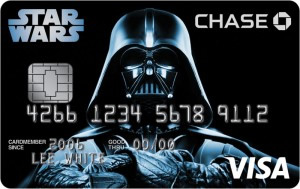
Premium credit cards are a great way to earn rewards – too bad they almost always come with hefty annual fees. Although the annual fee may be worth it if you’re a big spender, for a lot of people the fee could prove more costly than the rewards you’ll actually earn. The good news is there’s a way to have your cake and eat it, too.
Credit Cards with Annual Fees
You’re probably asking yourself why anyone would want to pay an annual fee, especially when there are so many great credit cards out there will no annual fee. So called premium credit cards often times offer benefits or features that are only available for a fee. For example, some travel reward cards offer perks like access to elite airport lounges or 24/7 concierge services.
With so many credit cards out there, it can be overwhelming to choose just one. When selecting a card, look for rewards that match your spending habits. Earn even more rewards by sharing a credit card with your spouse and combining all your spending onto one credit card.
Although it may make sense to sign up for more than one no annual fee credit card to take advantage of different types of rewards like cash-back and travel rewards, in most cases it makes sense to sign up with one premium credit card so you aren’t stuck paying the annual fee more than once.
Here are some tips to reduce or eliminate the impact of paying an annual fee so you can enjoy all the perks of a premium credit card.
1. Take Advantage of Offers for New Applicants
Why haggle with credit card issuers when you don’t have it? Many issuers will waive their annual fee for the first year just for signing up. You can earn the same great rewards of premium credit cards without incurring the costly annual fee.
2. Choose a Premium Card With a Sign Up Bonus
Many premium credit cards offer bonus reward points just for signing up. Value the points and find out how much you’ll earn – often times the reward points will more than offset the annual fee you’ll pay the first year. For example, if you earn $500 in reward points for spending at least $2,000 in the first three months, the annual fee will seem like pocket change compared to the rewards you’ll receive.
3. Negotiate Your Annual Fee Upon Renewal
What better time to negotiate your annual fee than when your credit card comes up for renewal? Don’t assume your annual fee is written in stone. Your credit card issuer may be willing to waive your annual fee to keep your business. Be sure to get prepared before you call customer service.
If threatening to cancel your credit card doesn’t work on the call service representative, you might try asking to speak to someone in the “accounts retention” department. Remember to always plead your case in a tactful manner. It doesn’t hurt to come armed with a more attractive offer from a rival credit card issuer. Although your issuer may not waive your annual fee, perhaps they may be willing to offer you additional reward points.
4. Cancel Your Credit Card and Sign Up With the Competition
If your credit card issuer won’t budget on the annual fee, as a last resort you can cancel your credit card. This will provide you with the chance to look for premium credit cards that waive the annual fee or offer generous sign up bonuses. If you miss your old credit card , but your issuer isn’t willing to waive the annual fee or provide a sign up bonus, you may be able to wait 12 to 18 months and signing up again and pay no annual fee.
The Bottom Line
When choosing a premium credit card, you should look for a card where you can maximize the rewards. A word of caution: these types of cards are not for everyone. For many cardholders, the benefits and rewards outweigh the costs of card ownership, but for others that isn’t the case. The annual fee is only one thing you should consider before signing up for a premium credit card.




